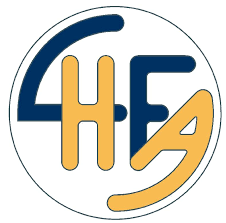New non-innocent ligands for new avenues in gold chemistry
CHEMISTRY & GREEN CHEMISTRY

Lab: LHFA
Duration: NanoX master Internship (8 months part-time in-lab immersion)
5 months full-time internship
6 months full-time internship
Latest starting date: 01/03/2023
Localisation: Laboratoire Hétérochimie Fondamentale et Appliquée
UMR CNRS 5069
118 Route de Narbonne
31062 Toulouse Cedex 9
Supervisors:
Didier BOURISSOU didier.bourissou@univ-tlse3.fr
This research master's degree project could be followed by a PhD
Work package:
Despite major progress over the past 2-3 decades, the chemical space of gold remains very limited compared to the other transition metals. Only Au(I) and Au(III) complexes are known essentially. Other oxidation states remain curiosities or are simply unknown. About 10 years ago, my group has launched a research program aimed at opening and developing new avenues in gold chemistry thanks to ligand design.[1] In this project, it is the aim to develop new ligand frameworks with phosphines, but also boranes as coordination sites.[2] By fine tuning the coordination sphere of gold, we target other redox states of gold, such as Au(0). It is also our goal to take advantage of non-innocent ligands to elicit difficult or even unprecedented reactivity at gold, such as 2-electron redox cycling and single-electron transfers. The project deals mainly with molecular complexes, but extension to polymetallic species (small clusters, nanoparticules) may also be envisioned.
References:
[1]
a) Zeineddine, A.; Estévez, L.; Mallet-Ladeira, S.; Miqueu, K.; Amgoune, A.; Bourissou, D. Nat. Commun. 2017, 8, 565 DOI: 10.1038/s41467-017-00672-8;
b) Rigoulet, M.; Massou, S.; Sosa Carrizo, E. D.; Mallet-Ladeira, S.; Amgoune, A.; Miqueu, K.; Bourissou, D. Proc. Natl. Acad. Sci. U.S.A. 2019, 116, 46. DOI: 10.1073/pnas.1817194116;
c) Rodriguez, J.; Holmsen, M.; García-Rodeja, Y.; Sosa Carrizo, E. D.; Lavedan, P.; Mallet-Ladeira, S.; Miqueu, K.; Bourissou, D. J. Am. Chem. Soc. 2021, 143, 11568 DOI: 10.1021/jacs.1c04282;
d) Rigoulet, M.; Miqueu, K.; Bourissou, D. Angew. Chem. Int. Ed. 2022, 61, e202204781 DOI: 10.1002/anie.202204781
[2] Amgoune, A.; Bourissou, D. Chem. Commun. 2011, 47, 859 DOI: 10.1039/C0CC04109B; b) Bouhadir, G.; Bourissou, D. Chem. Soc. Rev. 2016, 45, 1065 DOI: 10.1039/C5CS00697J.
Areas of expertise:
Coordination chemistry, transition metal chemistry, synthesis, characterization, reactivity.
Required skills for the internship:
This project will give the master student the opportunity to work under inert atmosphere, to use a number of advanced analytical methods (multi-nuclear NMR, X-ray diffraction, UV-vis, electrochemistry…) and to discover the interplay between calculations and experiments (thanks to our collaboration with expert theoreticians). The candidate should be very enthusiastic and enjoy working closely with a team.
